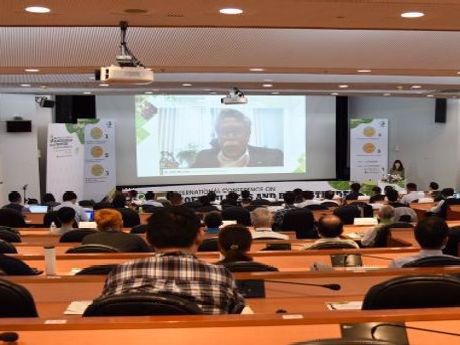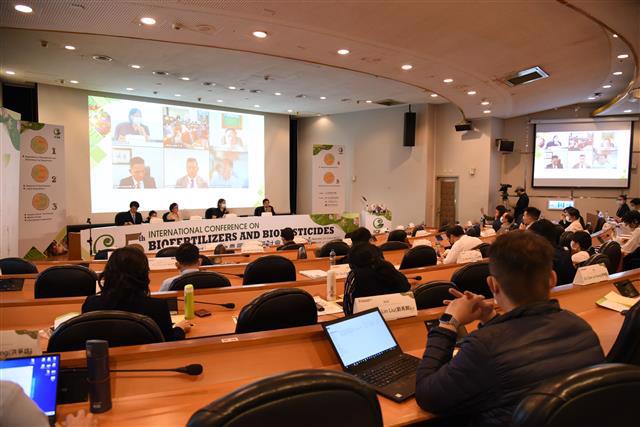
B&B e-Paper
B&B e-Paper
B&B E-Paper No.12
Highlight of APO 5th International Conference on Biofertilizers and Biopesticides (ICBB)
Introduction
Biofertilizers and Biopesticides (B&B) use can play an important role in sustainable agriculture in the Asia-Pacific region by mitigating negative impacts associated with chemical fertilizers and pesticides. The activity started the five-year International Conference on Biofertilizers and Biopesticides (ICBB) series in 2016 was jointly organized by the Asian Productivity Organization (APO), Council of Agriculture (COA), China Productivity Center (CPC) and Agricultural Technology Research Institute (ATRI). Each conference focused on different aspects of B&B, and the topic of the fifth and final one was marketing and commercialization.
The virtual sessions of the 5th ICBB held on 28 April were attended by 79 participants and 40 observers from Bangladesh, India, Iran, Fiji, Malaysia, Mongolia, Nepal, Pakistan, Philippines, Republic of China, Sri Lanka, Thailand, Turkey and Vietnam of 14 APO member countries, along with four resource persons from Japan, Malaysia, Vietnam and ROC. Opportunities for public–private partnerships in biocontrol research and product development were outlined. Finally, participants, resource persons and moderators then engaged in a panel discussion to explore B&B new business creation and suggested recommendations of the future from ICBB.
|
|
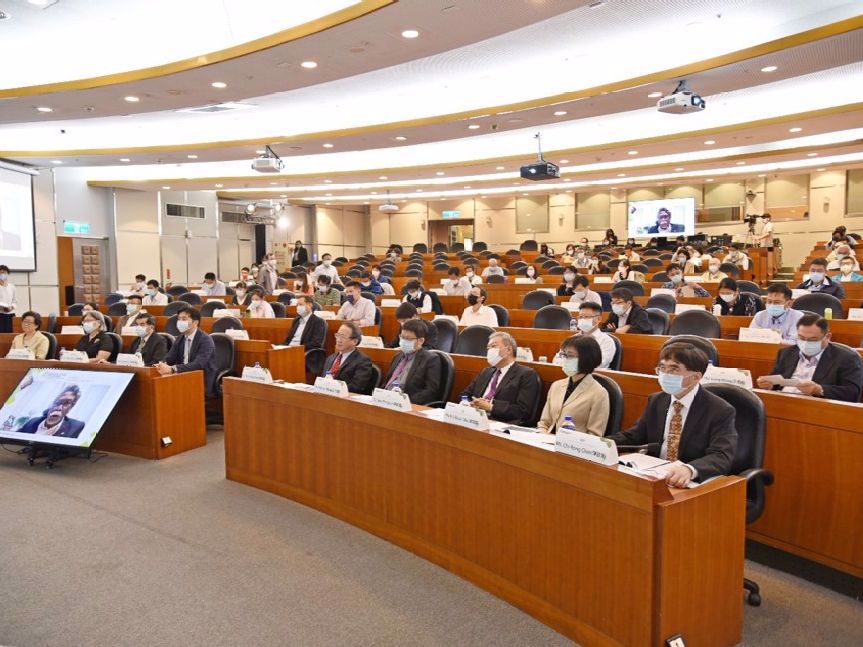 |
| Fig. 1. Group Photo of 5th International Conference on Biofertilizers and Biopesticides | |
Abstract of Presentation |
|
Global Industry Trends and Biopesticide Marketing Strategies: During and After the COVID-19 Pandemic |
|
Author’s Contact Mr. Tetsuo Wada,
|
 |
Global protection industry with proprietary products is historically dominated by the few gigantic European and American chemical companies and some Japanese chemical companies. Genetic products supply is mostly shared by the Chinese and Indian chemical companies. Many biopesticides companies had been purchased by the aforementioned multinationals. Biopesticides cover both microbial pesticides and macrobial natural enemies. Microbial pesticides and natural enemies will be used more if the following conditions are improved and satisfied.
(1) Treatment timing, (2) Humidity consideration, (3) no competition/interferences from chemical sector. (4) Governmental regulation to maximize biocontrol products.
|
Public-Private Partnership in Biocontrol Research and Product Development: A Successful Case from Vietnam |
|
Author’s Contact Dr. Pham Hong Hien, |
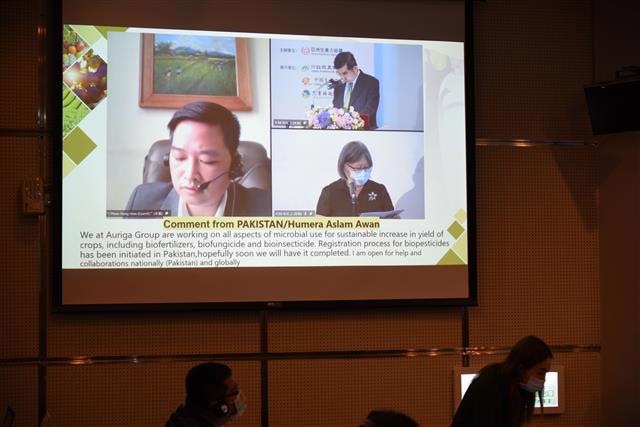 |
In the recent years, soil borne pests have been causing severe damage on agricultural crops in Viet Nam, particularly fruit and industrial crops. The common soil borne pests include soil borne plant pathogens, Phytophthora sp., Fusarium sp., plant parasitic nematodes. The control methods are mainly relied on the application of chemical pesticides. The frequent use of chemical pesticides led to the destruction of the environment and human health. MARD has assigned the institutions to develop the biological pesticides for the sustainable control of soil borne plant pathogens and plant parasitic nematodes. The goal is to reduce the chemical pesticides by 35% and replaced with biological pesticides in 2025. Research institutions in Vietnam Academy of Agriculture Sciences (VAAS) have been established the collaborations with international organisations, private companies and universities to develop the appropriate biological pesticides for the control of soil borne pests. Some biological products have been developed recently such as SH-LiFu, Bio-VAAS.1, Entonama33. The field demonstrations showed that the efficiency of these products agaisnt Phytophthora sp., Fusarium sp., nematodes, could reach 75%.
|
The Biofertilizer Market in Southeast Asia: Future Development Trends |
|
Author’s Contact Mr. Wan Azha Bin Wan Mustapha, |
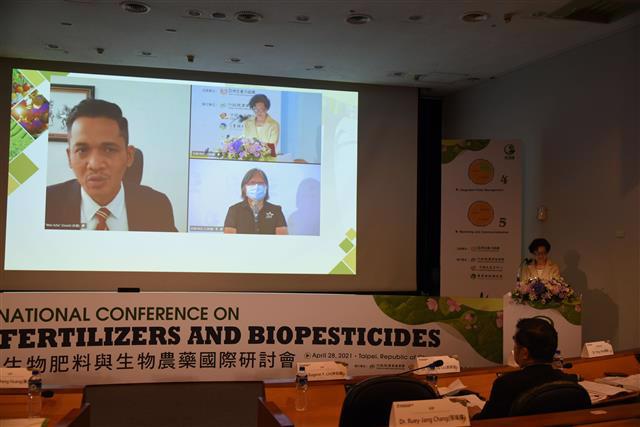 |
Use of industrial scale microbial inoculants in Southeast Asia modern agriculture started picking up in 1970’s with several common beneficial microorganisms in the market such as N-fixer, potassium and phosphorus solubilizers, growth promoting (PGPR), mycorrhiza and trichoderma. Unfortunately the fact that inorganic fertilizer is preferred choice by farmer, overall usage of biofertilizer in this region is consider low. Intensive use of inorganic fertilizers especially to the palm oil and rubber industries has turned out an adverse impact in the form of a decrease in soil fertility. However modern day biofertilizer development in microbial cultivation strategy, microbes incorporation in biomass and inorganic fertilizer, resistant seedling and Public Private Partnership program showing promising outcomes towards achieving sustainable crop production in Southeast Asia.
|
Review of the 1st-4th APO-ICBB Biopesticides Project Implementation, Recommendations and Future Prospects |
|
Author’s Contact Dr. Yu-Tang Hung, |
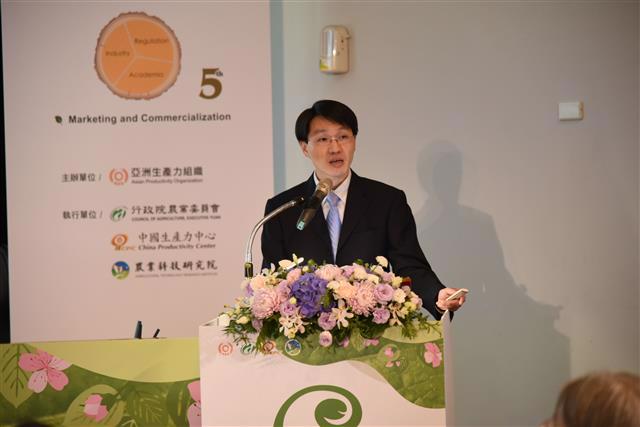 |
The project includes the organizing of the “International Conference on Biofertilizers and Biopesticides”, which is held annually from 2016-2020. It provides a forum to introduce and discuss the latest scientific progress and future exchanges of agricultural biological pesticides and biological fertilizers (B&B). The purpose is to expand the international market of domestic biological fertilizers and biological pesticides while promoting regional industrial development and cooperation in order to promote the development of my country's biopesticide industry. In addition to establishing a communication platform and the development of microbial pesticides and fertilizers to enhance domestic industry-university-research cooperation, other objectives include the establishing of an exchange platform for biopesticide research and development and product sales to promote the exchange of information regarding biopesticides. In addition, there are plans to expand and improve the bio-pesticide program, increase the demand for bio-pesticide, and increase farmers’ willingness to use it. Regarding the biopesticide laws and regulations, under the condition of ensuring product safety, the objectives are simplifying the registration procedures of biopesticides and establishing standard procedures for the development and registration of biopesticides. The goal is to promokjte the development of the biopesticide industry
Recommendations of International Conference on Biofertilizers and Biopesticides (ICBB) |
|
Seek Now >> Taiwan Commercial Seed (http://tssb2b.tss.gov.tw)
